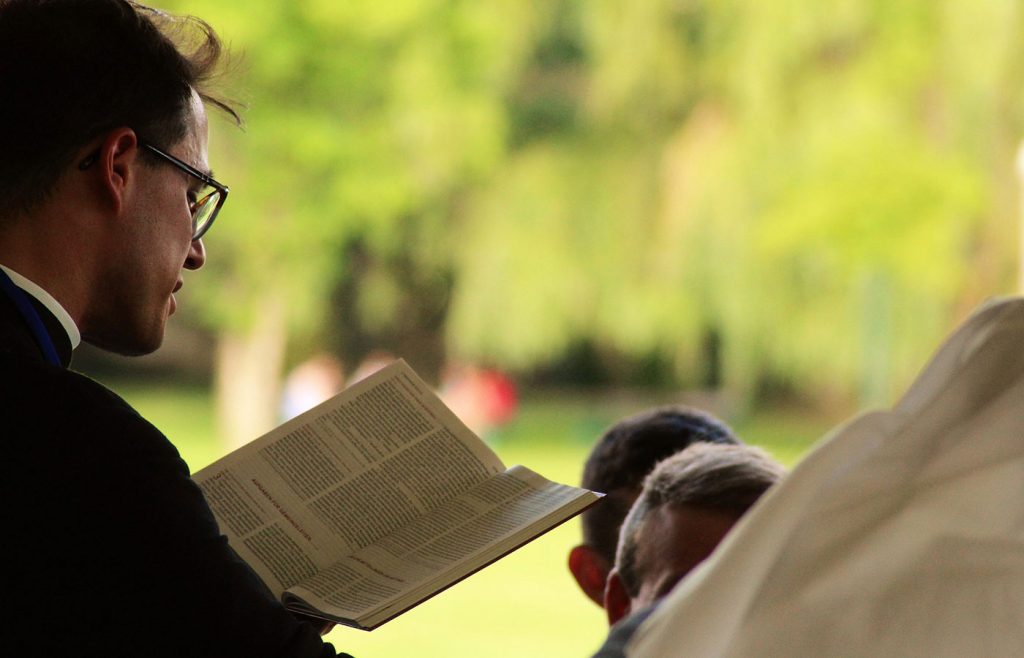Bible Studies

MAIN TEXT: Matthew 25:31-40.
MEMORY VERSE: I was naked and you clothed me, I was sick and you visited me, I was in prison and you came to me. – Matthew 25:36 (ESV).
INTRODUCTION:
The Church is the salt of the earth and light of the world. Thus, the Church has the responsibility to reflect the love of Christ to the world in which she operates. Among other functions, ULR Church is charged with the mandate to formulate policies and provide direction that would enable the Church meet her social responsibilities. In the passage read, Jesus reckons the various actions taken to meet the needs of people as help extended to Him. Our study today seeks to highlight the Church’s contributions in meeting some needs of humankind, as stated in the passage.
QUESTIONS FOR DISCUSSION:
Identify some of the needs of humankind stated in Verse 34-37.
Why do some Christians and churches overlook or neglect people with such needs? (Verse 37-39)
Discuss the statement, ‘Inasmuch as you have done it unto one of the least of these my brethren, you have done it unto me’. (Verse 40)
Which of the social intervention programmes of ULR Church do you know?
How can we resource ULR Church to fulfill their mandate?

MAIN TEXT: Proverbs 24:30-34.
MEMORY VERSE: The sluggard says, ‘there is a lion outside! I will be killed in the public square’. – Proverbs 22:13.
INTRODUCTION:
Many people have the tendency to use excuses to neglect their responsibilities. What is common to lazy people is the attitude of shifting blame and finding reason for their inability to perform a task. Often, the habitual excuse-maker is seen as the weak-link at the workplace. This is a reputation every Christian should avoid. In this light, we shall discuss the underlying causes and solutions to dealing with this attitude.
QUESTIONS FOR DISCUSSION:
From the passage, what are the marks of a lazy person? (Verses 31-34, Prov. 22:13)
In what ways is the attitude of laziness expressed in contemporary times?
How does the attitude of laziness lead to poverty? (Verse 33-34)
How can the attitude of laziness of be dealt with?
CONCLUSION:
The field of the sluggard as described in Proverbs 24:31-34 is overgrown with thorns, covered with weeds and has its fence wall broken. This is because daily, the sluggard finds an excuse to procrastinate, idle about and avoid work. Little by little, work undone accumulates and the sluggard is overwhelmed by the backlog. Laziness brings failure, poverty and lack of progress. Possibly, it is for this reason that some people live in unclean environments while others suffer unemployment and avoidable poverty. No one takes a habitual excuse maker serious at the workplace. They are often bypassed during promotion to which they complain bitterly. Such a person is a bad example and their testimony as Christians may not be taken seriously. To avoid being lazy, inculcate the habit of self-discipline, avoid procrastination, and plan your day by apportioning time for every task.

MAIN TEXT: ISAIAH 59:12-15
Do not lie to one another, seeing that you have put off the old self with its practices. – Colossians 3:9.
INTRODUCTION:
In the marketplace, the moral distortion of truth and deceit in doing business is often overlooked. Though subtle, the impression is that lying is unavoidable if one is to be successful in business. Unfortunately, deceptive characters have wrongfully assumed the title of being
smart. In the passage, the Prophet Isaiah laments the perversion of justice in the daily affairs of the people. He concludes that truth has fallen in the streets. Our discussion today will highlight the reason for this situation and our responsibility towards restoring truth to its rightful position in the marketplace.
QUESTIONS FOR DISCUSSION:
Identify the three issues being addressed in the passage. (Verses 14, 15)
Discuss the statement truth has fallen in the streets. (Verse 14b)
What challenges do honest people face in the marketplace? (Verse 15a)
How should Christians respond to these challenges?
How would you personally uphold truth, justice and fairness in the marketplace?
CONCLUSION:
The statement ‘truth is fallen in the streets’ describes the total disregard for truth, honesty, and fairness in the public place; market, political arena, courts, hospitals, etc. The Prophet goes further to say in verse 15 that, those who stand for the truth are oppressed by the vanguards of falsehood. When lies and falsehood control the affairs of the marketplace, honest people are persecuted. Nevertheless, we have been mandated by God to restore order to the marketplace. In pursuing this agenda, Christians need to avoid half-truths, trickery and manipulation at the workplace. It is a call to be straightforward, firm, transparent and sincere. Truth can fall where proverbially, there is no pillar to support it. As agents of transformation, we must uphold truth, honesty and fairness in the market place.
